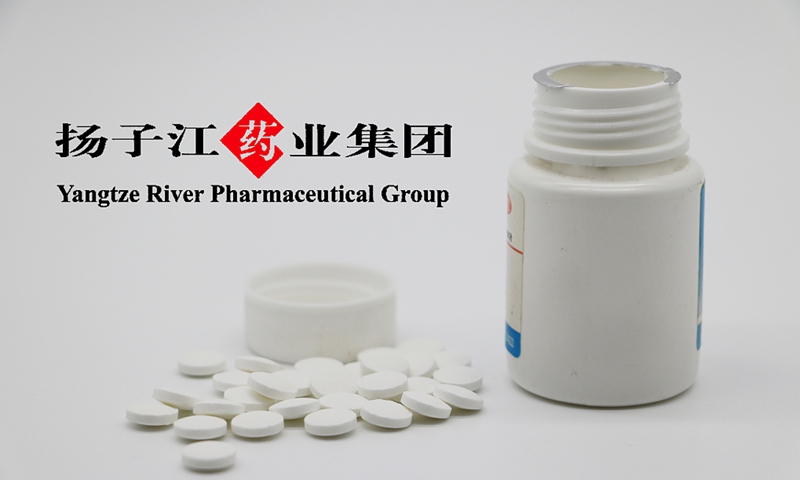Chinese regulator fines Yangtze River Pharmaceutical Group 764 million yuan for violation of Anti-Monopoly Law

Yangtze River Pharmaceutical Group Photo:VCG
China's market regulator imposed a fine of 764 million yuan ($116.84 million) on Yangtze River Pharmaceutical Group (YRPG) for its violation of the Anti-Monopoly Law, accounting for about 3 percent of the company's revenue in 2018.
From 2015 to 2019, Yangtze River Pharmaceutical Group reached fixed drug transfer price and minimum resale price limit agreement with downstream companies such as drug wholesalers and retail pharmacies through signing cooperation agreements, issuing price adjustment letters, and oral notices. read a statement on official website of the State Administration for Market Regulation (SAMR).
To ensure the implementation of the agreement, it provides an implementation framework, strengthens assessment and supervision, penalizes dealers selling below cost, and entrusts intermediary agencies to monitor online drug prices,read the statement.
All the above measures of YRPG eliminated and restricted competition, adversely impacting consumers and the public interest in violation of Anti-Monopoly Law, SAMR says.
Founded in 1971, YRPG is a national giant cross-regional pharmaceutical group, integrating with research, manufacturing and trading together. Headquartered in Taizhou, East China's Jiangsu Province, YRPG has over 20 subsidiaries across the country with its sales network covers all over China.
Drug prices are linked to the national economy and are essential to the lives of ordinary citizens, and involve major issues such as reducing the burden on people seeking medical care and enhancing people's livelihood and welfare, the country's market regulator said, adding that it will continue to strengthen Anti-Monopoly Law enforcement in the pharmaceutical field, effectively prevent and stop monopolistic behavior, protect fair market competition, and safeguard the rights and interests of consumers.
Global Times
